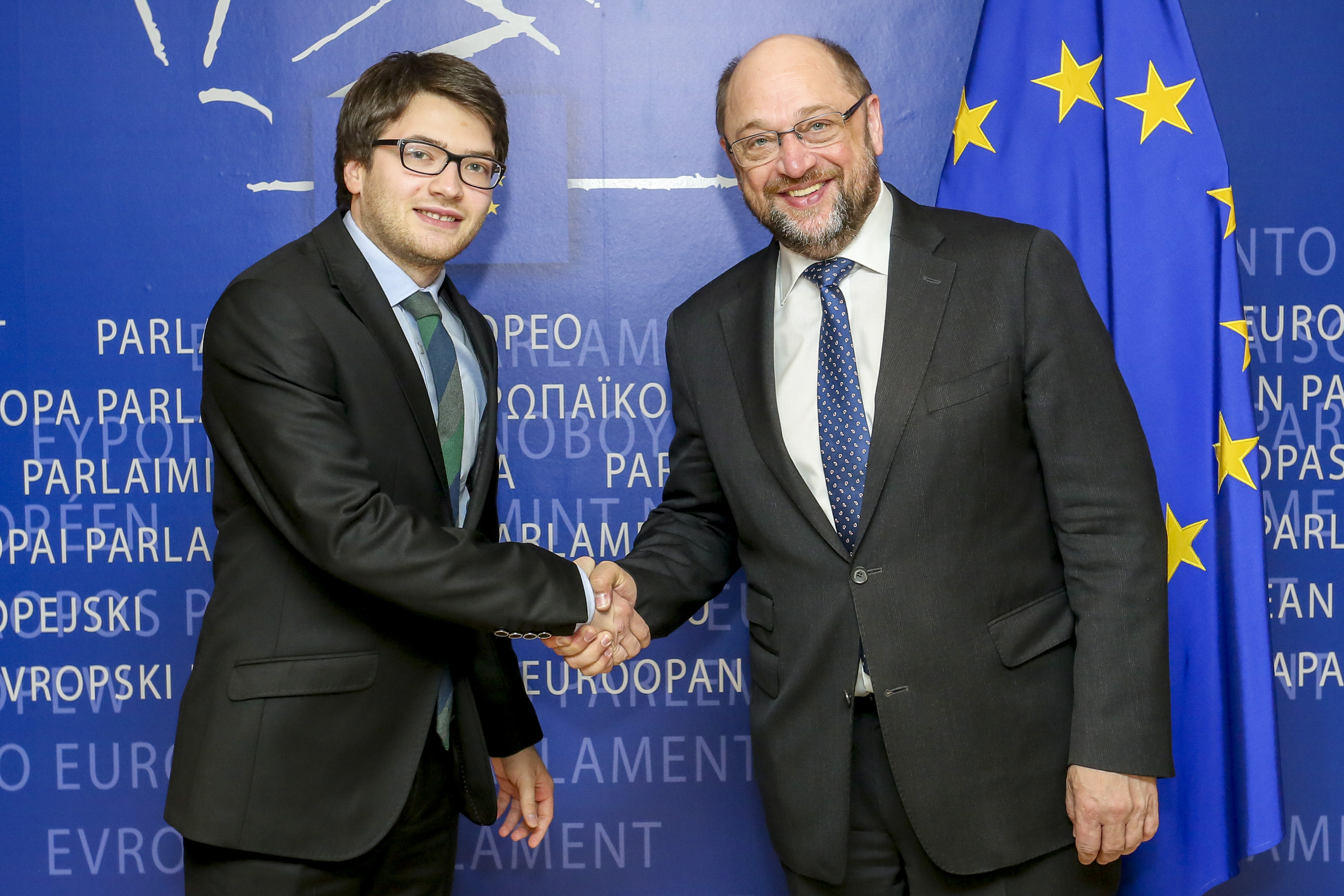Denis Piplaš has a master’s degree from the College of Europe (European College) in Bruges in the field of international relations and diplomacy of the European Union. Previously he studied at the University of Sarajevo and the University of Vilnius in Lithuania. After graduation, he had the opportunity to acquire practical knowledge through his involvement in the European Parliament, where he worked as a trainee in the cabinet of President Schulz from October 2014. Previously, he completed an internship at the International Criminal Tribunal for the former Yugoslavia in The Hague, and in Sarajevo he worked in the office of Transparency International, as well as various other local, national and international organizations. After completion of his Master’s Degree in International Relations and Diplomacy of the EU, he decided to apply for the Schuman Traineeship Programme in the cabinet of the President of the European Parliament, Martin Schulz. The traineeship offers young people work experience in the European Parliament. He was fortunate enough to be selected from among the 1,500 applications received.
You completed a Traineeship in the office of President of the European Parliament, Martin Schulz. How did you decide to sign up, and why?
I have actively and with interest followed the processes and policies taking place within European institutions for several years. My interest in the European Union was originally linked to the integration of Bosnia and Herzegovina into the EU. Through studies and various other engagements, my interest in the EU deepened and I began to focus on its foreign policy and relations with other countries. After completion of my Master’s Degree in International Relations and Diplomacy of the EU, I decided to apply to the Schuman Traineeship programme that offers young people work experience in the European Parliament. I applied to work in the cabinet of President Schulz (the part of the cabinet engaged in foreign policy), and I was fortunate enough to be selected from among the 1,500 applications received.
What are the impressions you carry away with you from this institution?
The work in the European Parliament represents a major and important experience for me, especially since I had the privilege of working in the office of the president in an interesting and turbulent period that occurred after the last European elections in May 2014. The European Parliament is the centre of Brussels democracy and all the impressions that I carry with me are extremely positive.
What did an average working day look like?
The working day in the Parliament lasts from 8:30 to 17:30, and it is common practice to stay even longer in the office. Every day was different, but on a daily basis I would investigate and participate in the drafting of speeches and briefings for the President on various issues related to foreign policy (the conflict in Ukraine, Eastern Partnership countries, the Western Balkans and the EU enlargement policy, relations between the EU and China as well as relations between the EU and the countries of Central Asia, human rights, energy and security). Also, I followed and reported on the meetings of the various boards / committees in the European Parliament (for foreign policy, international trade, human rights, security and defence), and the inter-parliamentary delegations for relations with third countries. I often had the opportunity to participate and follow President Schulz in his meetings with visiting foreign leaders, which left a special impression on me.
You decided as a citizen of a country outside the European Union to sign up to this type of Traineeship. How common is that and is it different from Traineeships for citizens of the EU?
Most of these programmes are also open to young people from countries outside the EU, which is very commendable. However, the number is limited and the vast majority of available positions are reserved for people from the EU member states. Surely faster integration of Bosnia and Herzegovina into the EU would further increase and popularize opportunities for our young people.
Who did you cooperate with during the Traineeship and in what way did you improve and expand your knowledge about the work of the European Parliament?
The European Parliament is a very complex institution, and time and practice obtained while working there is the best way to provide additional training and ensure dissemination of knowledge about the institution. This involvement gave me a unique opportunity to meet and cooperate with a wide variety of professionals in this European institution as well as representatives of various think tanks, civil society and diplomatic representatives in Brussels. The knowledge and contacts that I gained are for sure the most important thing I carry away with me. The experience of working in the cabinet of President Schulz is of immeasurable importance to my future work.

